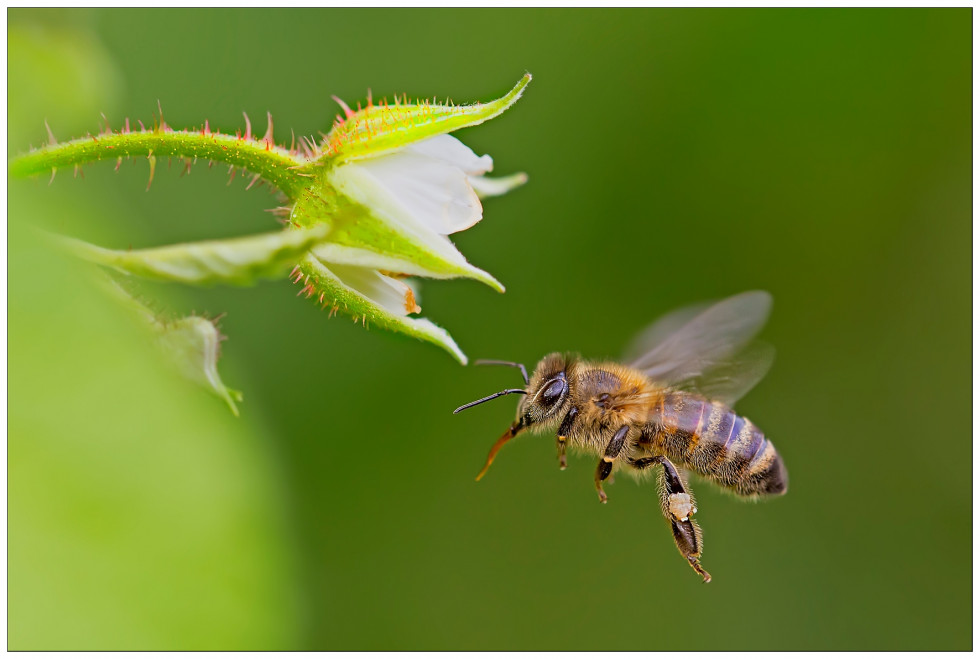By gov.si
In two weeks time, on 20 May, Slovenia and the rest of the world will celebrate World Bee Day for the fifth time. The UN General Assembly proclaimed World Bee Day on 20 December 2017. Since 2022 is the European Year of Youth, the main topic of this year’s celebration are young people and beekeeping.
As in previous years, the UN Food and Agriculture Organization (FAO) will hold a special event entitled Bee engaged: Celebrating the diversity of bees and beekeeping systems. Golden Bee Award, which will be awarded on 20 May for the second time in a row, also marks the celebration of World Bee Day. Prof. Lucas Alejandro Garibaldi from Argentina received the first Golden Bee Award in 2021.
The main topic of this year’s celebration are young people and beekeeping. It addresses young people and raises awareness of the importance of pollinators and their protection and of learning beekeeping skills, which are passed down from generation to generation. In order to foster the future of beekeeping, it is necessary to transfer knowledge and raise awareness of the importance of bees, in particular among young people who represent our future. Beekeeping enables the creation of new green jobs and offers new opportunities for beekeeping families and farms to develop apitourism or other products with added value.
Slovenia has been committed to raising awareness among young people of the importance of bees and beekeeping for many years. The Traditional Slovenian Breakfast and the European Honey Breakfast, which takes place in some EU member states, are the most well-known projects. Several beekeepers and local associations are also highly active in schools and kindergartens where they teach children the importance of beekeeping and inspire them to take up this profession. There is a growing interest for beekeeping in Slovenia and a growing number of beekeepers – there were as many as 11,449 beekeepers in Slovenia in 2021.
This year’s World Bee Day will be celebrated nationally on 21 May 2022 in Dolenjske Toplice. The celebration will be organised by the Slovenian Beekeepers’ Association. FAO will host an online round table entitled Bee engaged: Celebrating the diversity of bees and beekeeping systems. Experts from across the globe will present different beekeeping methods and the diversity of bees and wild pollinators. The participants will discuss the problem of the rapid decline in the diversity of pollinators.
Slovenia chose 20 May as the birthday of Anton Janša, who is considered a pioneer of modern beekeeping and one of the greatest experts on bees. He was the world’s first modern beekeeping teacher and was appointed permanent beekeeping teacher at the new beekeeping school in Vienna by the Empress Maria Theresa. Similarly to Anton Janša, the global public is also aware of the importance of bees and other pollinators. Bees and other pollinators are invaluable in economic, social and environmental terms. Pollination by bees and other pollinators is one of the most important ecosystem services. It is essential for the functioning of natural and agricultural ecosystems and, as a result, for food production and biodiversity. Insect pollination is an important ecosystem service, which amounts to at least €153 billion per year globally.There is an increased need for pollination due to the growing world population. The diversity of pollinators – both bees and wild pollinators – is crucial for reliable food production and the conservation of biodiversity. The COVID-19 epidemic reminded us that food security should not be taken for granted.
The main purpose of World Bee Day is to raise awareness among the international public about the importance of bees and other pollinators for humanity in the light of food security, the global elimination of hunger, and care for the environment and biodiversity. The marking of World Bee Day, which takes place every year in Slovenia and around the world, is an important priority for Slovenia, aiming to promote the importance of bees and wild pollinators and calling for increased activities for their conservation.

